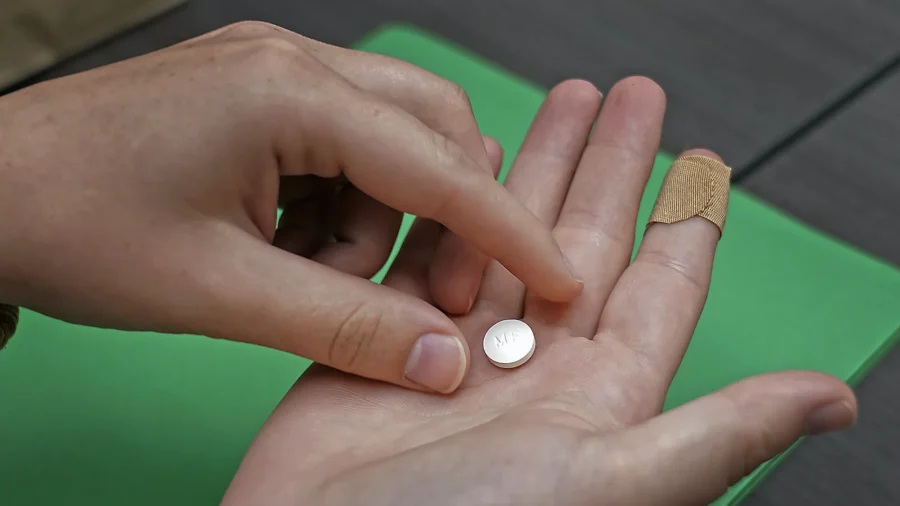More than 7,000 bottles of the antidepressant duloxetine have been recalled across the United States after they were found to contain levels of a potentially cancer-causing chemical above the limit set by the U.S. Food and Drug Administration (FDA).
The recall of Duloxetine Delayed-Release Capsules—manufactured by Towa Pharmaceutical Europe—was first initiated on Oct. 10 owing to a “nitrosamine drug substance related impurity,” according to an FDA notice.
The notice points to the presence of a chemical called N-nitroso-duloxetine that is above the agency’s “proposed interim limit.”
N-nitroso-duloxetine is toxic if swallowed and is suspected of causing cancer, according to the National Library of Medicine.
Approximately 7,100 bottles of Duloxetine have been recalled nationwide, including 500 delayed-release 20-milligram capsules, the FDA’s notice states.
The recalled bottles have a lot number of 220128 and an expiration date of 12/2024, according to the notice, which classifies the recall as a Class II.
According to the FDA’s website, a Class II recall is used in a “situation in which use of, or exposure to, a violative product may cause temporary or medically reversible adverse health consequences or where the probability of serious adverse health consequences is remote.”
Duloxetine is a prescription-only drug used to treat depression and anxiety, according to the Mayo Clinic. It is also used to treat pain caused by nerve damage associated with diabetes, fibromyalgia, and chronic muscle pain.
The drug belongs to a group of medicines known as selective serotonin and norepinephrine reuptake inhibitors, which work by increasing serotonin and norepinephrine activity in the brain.
Risks Associated With Nitrosamine Impurities
Duloxetine is sold under the brand name Cymbalta, among others.
According to the FDA’s notice, the recalled bottles of duloxetine were distributed across the United States.
The notice did not state why the recalled bottles contained nitrosamine impurities above the FDA’s threshold. However, a page providing information about nitrosamine impurities in medications on the agency’s website states that there are multiple reasons why they may be present in drugs.
One potential source includes the drug’s manufacturing process. Chemical structure and the conditions in which the drugs are stored or packaged may also contribute to the presence of nitrosamine impurities, the FDA states.
As foods and drugs are processed in the body, nitrosamines can also be formed.
The FDA notes that nitrosamines are commonly found in water and foods, including cured and grilled meats, dairy products, and vegetables, and that everyone is exposed to some level of nitrosamines.
However, long-term exposure can lead to an increased risk of cancer.
“Nitrosamine impurities may increase the risk of cancer if people are exposed to them above acceptable levels and over long periods of time, but a person taking a drug that contains nitrosamines at-or-below the acceptable daily intake limits every day for 70 years is not expected to have an increased risk of cancer,” the FDA states.
“FDA continues to test and research possible sources for drugs found to contain nitrosamines.”
From The Epoch Times

